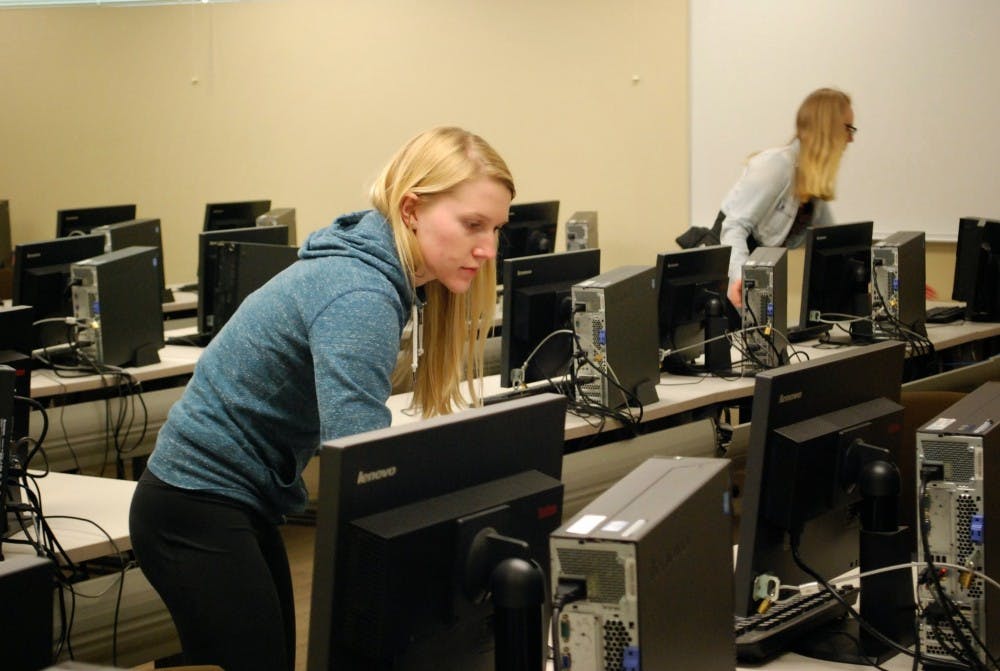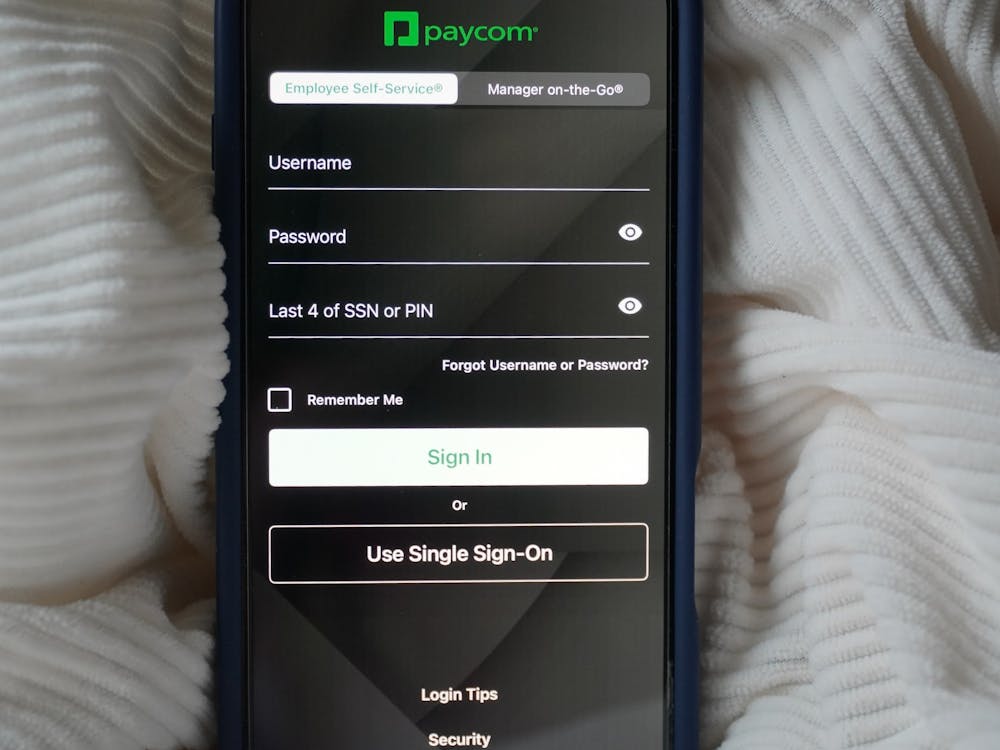by Alina Rosenkranz |
A group of students on The Bluff is on a mission. On a mission to save energy.
This group of students meets in Franz Hall on Friday nights to go from building to building and turn off computer monitors, document cameras, lights and DVD players. This effort, called “Friday Night Lights,” was started by the College Ecology Club about a year ago and aims to save energy by turning off electronics around campus over the weekends.
Junior Anthony Ng, College Ecology Club treasurer, estimated that the group turned off an average of 37.5 monitors, 47 lights, 10.75 document cameras and 1.5 DVD players per week throughout fall 2015.
“It just feels better because you know that you are making a difference,” Ng said. “Even though the University may not see that yet.”
Senior Brooke Holmes, an environmental science major, said she was disappointed when the club was informed by the Help Desk soon after they started that they are not allowed to completely shut down computers, because they run updates over the weekend and faculty complained of issues turning them back on on Mondays.
The club aims to raise awareness about the importance of saving energy, according to College Ecology Club President Abigail Maddigan.
“I wish the campus would let us turn off everything,” Maddigan said. “We’re not allowed to turn off everything, just because inconvenience is a really big thing for people and if people are inconvenienced they don’t want to do it.”
The College Ecology Club is involved in other service projects, working together with local non-profit Friends of Trees, streaming documentaries on campus and attending an annual beach clean-up organized by Solve, another Portland non-profit.
Holmes cares about the impact humans have on the environment and said she gets really passionate about it, especially during discussions after watching documentaries like “Dirt," a documentary about “Earth’s most valuable and underappreciated source of fertility.”
“I think that if you are not pissed off, then you’re not paying attention,” Holmes said. “And I’m definitely pissed off.”
Environmental studies professor Ted Eckmann, who sometimes participates in Friday Night Lights, thinks that UP could easily become more sustainable by making more of an effort to turn off electronic devices.
“There are expensive things, harder changes to make that could really make us sustainable, but when we’re not even doing the easy ones, then we should start with light switches,” Eckmann said.
Alina Rosenkranz is a reporter for The Beacon. She can be reached at rosenkra17@up.edu.








